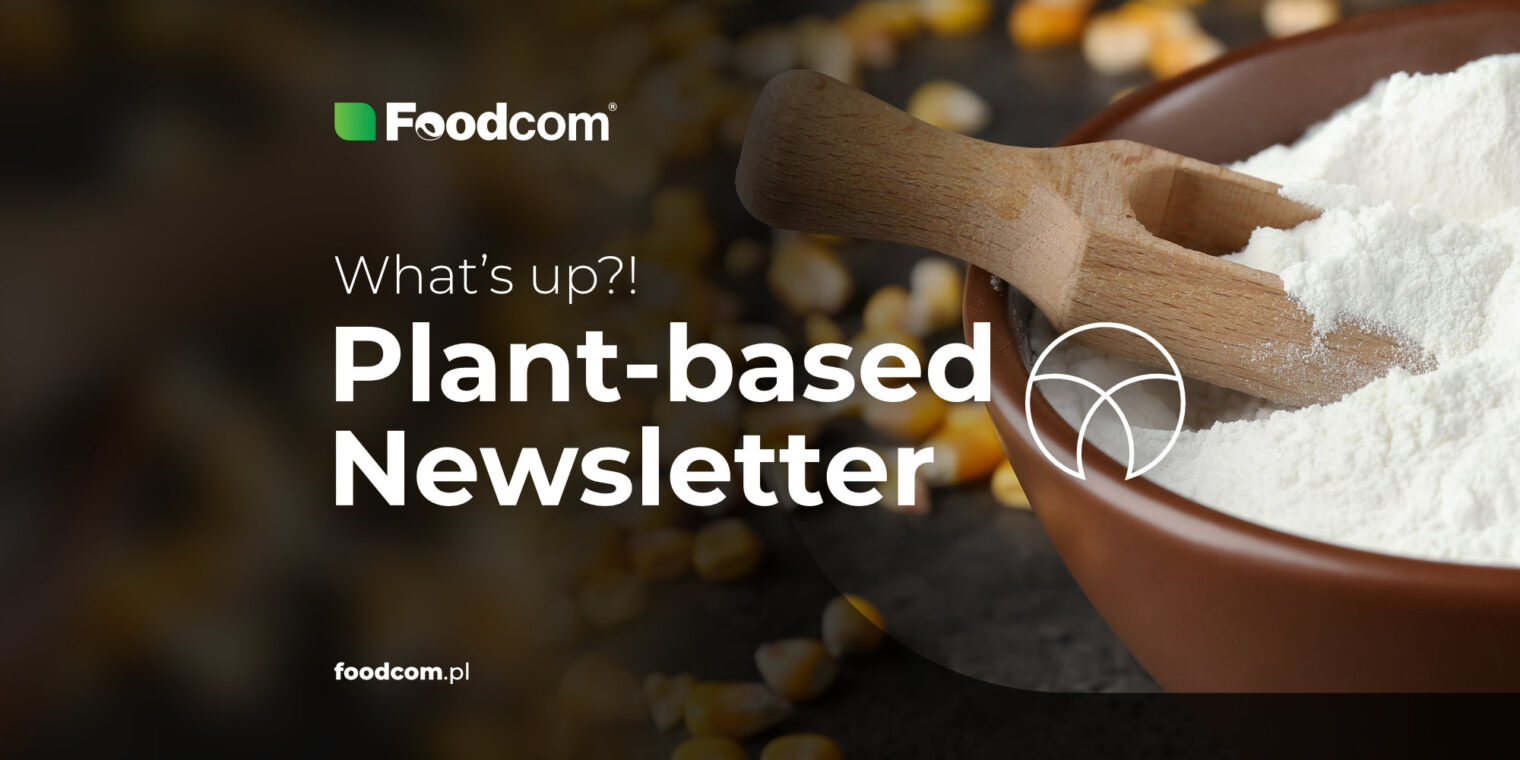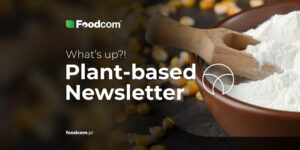Summary
Table of contents
The end of 2022 does not bring the necessary relief. According to government data, the ongoing avian flu epidemic has killed 50.54 million birds in the United States, making it the largest animal disease disaster in the nation’s history. Poultry flock losses have driven egg and turkey prices to record levels, directly increasing the cost of living and further complicating the situation for consumers struggling with inflation. Europe and the UK are also suffering the worst of the bird flu. Some British supermarkets have rationed egg purchases after the avian flu outbreak disrupted supplies.
In the market of plant-based products, the situation is changing dynamically. Recently, movement has come to the products that were previously dormant. Many buyers are looking for year-round offers, while sellers and producers are usually unwilling to declare themselves for such a long period. Not in all cases can the demand for raw materials be met. Although the market is awakening, as mentioned above, the tension is felt in connection with the price forecast for the next year.
In fact, everyone is preparing to a greater or lesser extent for the intense challenges of the winter season. The expected power outages in France could hit supermarkets particularly hard. More and more countries and regions are introducing regulations to make agriculture more environmentally friendly, and farmer representatives are talking about the potential negative impact of these regulations. There’s also good news about harvests that are bigger than expected or even record-breaking. We write about all of this in the 24th Edition of the Plant-Based Newsletter.
Dextrose is sold at high prices. The market lacks a product of European origin, so the raw material produced in other parts of the world is becoming increasingly popular. The demand far exceeds the supply. It is expected that in the near future Dextrose offers will enter the market at prices above 2 EUR/KG. This is an extremely high price that buyers will certainly not accept anytime soon. Buyers interested in Glucose-Fructose Syrup are looking for six-month or full-year contracts, but adequate volumes are not currently available. Demand for Fructose is high, but buyers are not accepting the high prices for now. As for Maltodextrin, many predicted it would sell out for Q4 2022, but that has not happened, likely due in part to high prices. The raw material is used in the manufacturing of essential products such as baby food. So demand for Maltodextrin will not decrease, but currently buyers only buy when they are forced to.
Due to the poor potato harvest this year, the availability of Native Potato Starch in the market is still very low. At the same time, demand remains high. Buyers are beginning to replace the Ukrainian product with raw material from other European countries. Native Corn Starch is in high demand, especially among food manufacturers. Availability is not very high. Prices for the raw material are currently rising slightly, with prices for contracts signed for Q1 2023 rising more sharply. Buyers want to sign contracts for the whole next year, while sellers do not want to commit for such a long period. Not much is happening in the Native Wheat Starch market right now, although there are early signs of more movement, especially among paper producers. More will start to happen in Q1 2023. In general, most inquiries for Native Starches are for Q1, and few users are interested in contracts running later this year. We anticipate that pricing for contracts for all of 2023 will be released in January (of course, only from manufacturers who have not yet sold out…). This will be a few weeks later than typical due to the unusual conditions this year, namely the lack of raw materials and the high energy prices.
This is the category of plant-based products that is currently most in demand. It is difficult to find Modified Starches for cold applications on the market. Therefore, there is a growing interest in substitute products made from potato and tapioca. There are many requests for E1442, E1422, E1414, mainly from manufacturers of ready meals (did we mention that apparently nobody cooks at home anymore?). Certainly worth mentioning at the moment is the underrated product Native Waxy Corn Starch, which has the same uses as E1442, but is in principle cheaper and does not require an E-number on the label of the final product.
Manufacturers using Vital Wheat Gluten are looking for deals for next year. They are interested in buying the raw material for Q1, Q2 and the whole year, at the same time the contracts with many producers of the commodity have already been concluded. It is the most sought-after raw material of all those produced from the plant, while at the same time the supply is not enough to meet the demand. As a result, prices naturally rise. Corn Gluten Meal is also predicted to increase in price. Movement in the market is becoming more intense as feed manufacturers look for ever-increasing volumes, especially raw materials produced in the European Union. Potato Protein is currently virtually unavailable on the market because (as we have already mentioned) potato harvests this year have not been satisfactory and the potatoes that are available are mainly used for the production of Potato Flakes and other raw materials for the food industry.
In the market of plant-based products, the situation is changing dynamically. Recently, movement has come to the products that were previously dormant. Many buyers are looking for year-round offers, while sellers and producers are usually unwilling to declare themselves for such a long period. Not in all cases can the demand for raw materials be met. Although the market is awakening, as mentioned above, the tension is felt in connection with the price forecast for the next year.
In fact, everyone is preparing to a greater or lesser extent for the intense challenges of the winter season. The expected power outages in France could hit supermarkets particularly hard. More and more countries and regions are introducing regulations to make agriculture more environmentally friendly, and farmer representatives are talking about the potential negative impact of these regulations. There’s also good news about harvests that are bigger than expected or even record-breaking. We write about all of this in the 24th Edition of the Plant-Based Newsletter.
Natural sweeteners
Dextrose is sold at high prices. The market lacks a product of European origin, so the raw material produced in other parts of the world is becoming increasingly popular. The demand far exceeds the supply. It is expected that in the near future Dextrose offers will enter the market at prices above 2 EUR/KG. This is an extremely high price that buyers will certainly not accept anytime soon. Buyers interested in Glucose-Fructose Syrup are looking for six-month or full-year contracts, but adequate volumes are not currently available. Demand for Fructose is high, but buyers are not accepting the high prices for now. As for Maltodextrin, many predicted it would sell out for Q4 2022, but that has not happened, likely due in part to high prices. The raw material is used in the manufacturing of essential products such as baby food. So demand for Maltodextrin will not decrease, but currently buyers only buy when they are forced to.
Native Starches
Due to the poor potato harvest this year, the availability of Native Potato Starch in the market is still very low. At the same time, demand remains high. Buyers are beginning to replace the Ukrainian product with raw material from other European countries. Native Corn Starch is in high demand, especially among food manufacturers. Availability is not very high. Prices for the raw material are currently rising slightly, with prices for contracts signed for Q1 2023 rising more sharply. Buyers want to sign contracts for the whole next year, while sellers do not want to commit for such a long period. Not much is happening in the Native Wheat Starch market right now, although there are early signs of more movement, especially among paper producers. More will start to happen in Q1 2023. In general, most inquiries for Native Starches are for Q1, and few users are interested in contracts running later this year. We anticipate that pricing for contracts for all of 2023 will be released in January (of course, only from manufacturers who have not yet sold out…). This will be a few weeks later than typical due to the unusual conditions this year, namely the lack of raw materials and the high energy prices.
Modified Starches
This is the category of plant-based products that is currently most in demand. It is difficult to find Modified Starches for cold applications on the market. Therefore, there is a growing interest in substitute products made from potato and tapioca. There are many requests for E1442, E1422, E1414, mainly from manufacturers of ready meals (did we mention that apparently nobody cooks at home anymore?). Certainly worth mentioning at the moment is the underrated product Native Waxy Corn Starch, which has the same uses as E1442, but is in principle cheaper and does not require an E-number on the label of the final product.
Proteins
Manufacturers using Vital Wheat Gluten are looking for deals for next year. They are interested in buying the raw material for Q1, Q2 and the whole year, at the same time the contracts with many producers of the commodity have already been concluded. It is the most sought-after raw material of all those produced from the plant, while at the same time the supply is not enough to meet the demand. As a result, prices naturally rise. Corn Gluten Meal is also predicted to increase in price. Movement in the market is becoming more intense as feed manufacturers look for ever-increasing volumes, especially raw materials produced in the European Union. Potato Protein is currently virtually unavailable on the market because (as we have already mentioned) potato harvests this year have not been satisfactory and the potatoes that are available are mainly used for the production of Potato Flakes and other raw materials for the food industry.
Categories:







